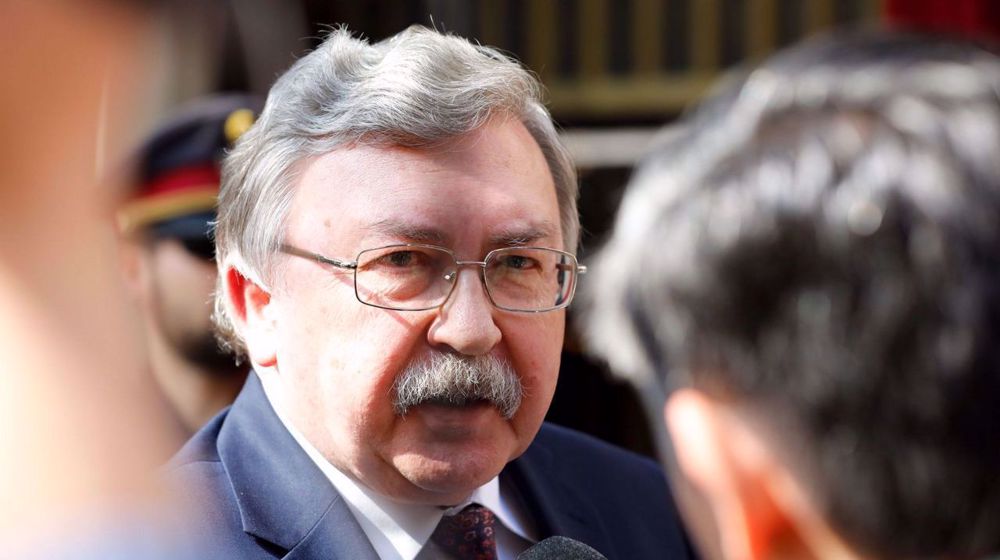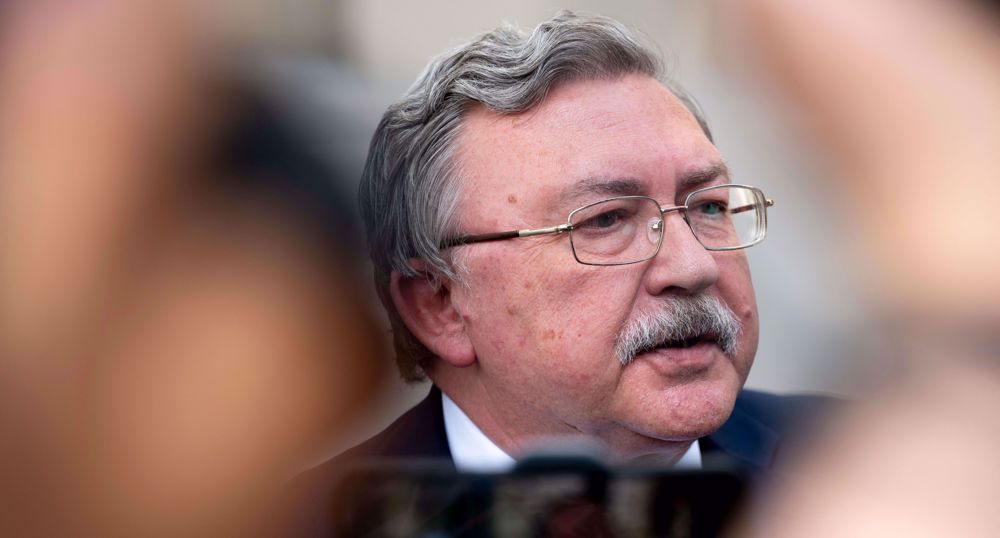- News code: 1517410
Reacting to the almost one-month pause in the Vienna talks aimed at reviving the 2015 Iran nuclear deal, Russia’s permanent representative to the international organizations in the Austrian capital says the course of the talks proves that the US overestimated the impact of its so-called maximum pressure campaign on Iran.
“The course of the #ViennaTalks proves once again that US overestimated the influence of maximum pressure on #Iran. Pressure continues but Iran isn’t in the rush although it knows that the sooner the talks are completed the sooner sanctions are lifted,” Mikhail Ulyanov, who is also Russia’s lead negotiator to the Vienna talks, said via Twitter on Thursday.
Ulyanov underlined that sanctions are not the only factor being taken into consideration by the Islamic Republic, which has been negotiating the restoration of the nuclear deal, called the Joint Comprehensive Plan of Action (JCPOA), with the remaining signatories of the deal since early April, three years after the agreement was ditched by the previous US administration in pursuit of the “maximum pressure” policy.
However, disagreements have persisted over a number of issues, including how to sequence the US sanctions removal, with Tehran arguing that since Washington was the party that violated the terms of the agreement, it should take the first step back into compliance with the deal by removing its unilateral sanctions.
Tehran has also asked for guarantees that the US won’t again leave the JCPOA under a new administration. This comes as the other hand, the administration of President Joe Biden says it cannot give such guarantees.
Iran is also dissatisfied with the scope of sanctions that the US is willing to remove, saying the US sanctions removal must cover all the sanctions that were slapped on the Islamic Republic after the JCPOA went into force in January 2016.
The US, for its part, has asked for follow-on talks about other issues, such as Iran’s missile program, which Tehran has strongly rejected.
Ulyanov warns of ramifications of protracted break
In another tweet later on Thursday, Ulyanov pointed to the latest reports on the possible continuation of the talks under the next Iranian administration and urged Iran not to let the talks get protracted for a long time.
“According to the latest reports #Iran will be ready to resume the #ViennaTalks on #JCPOA only after August 5. The question is when exactly,” he said.
If the break in the talks lasts too long, the Russian diplomat continued, the negotiators “can lose the momentum and the process would take much longer time than expected.”
This comes as last Thursday, Ulyanov said Tehran “needs more time for preparations” following its June 18 presidential election. The sixth round was concluded two days after the election.
Iran’s outgoing president, Hassan Rouhani expressed hope that the new administration will achieve the final favorable conclusion.
“The job is [nearly] done,” Rouhani said during a cabinet session. “Although they took the opportunity away from the 12th administration, we hope the 13th administration would be able to get this job done.”
"It does not matter if the 12th administration or the 13th one is successful [in doing so]," he noted.
The president’s chief of staff Mahmoud Vaezi also told reporters after the cabinet session that there remain one or two issues at the talks, but given that the Rouhani administration's term is nearing its end, “it seems that the [job] will be done at the beginning of Mr. Raeisi’s administration.”



